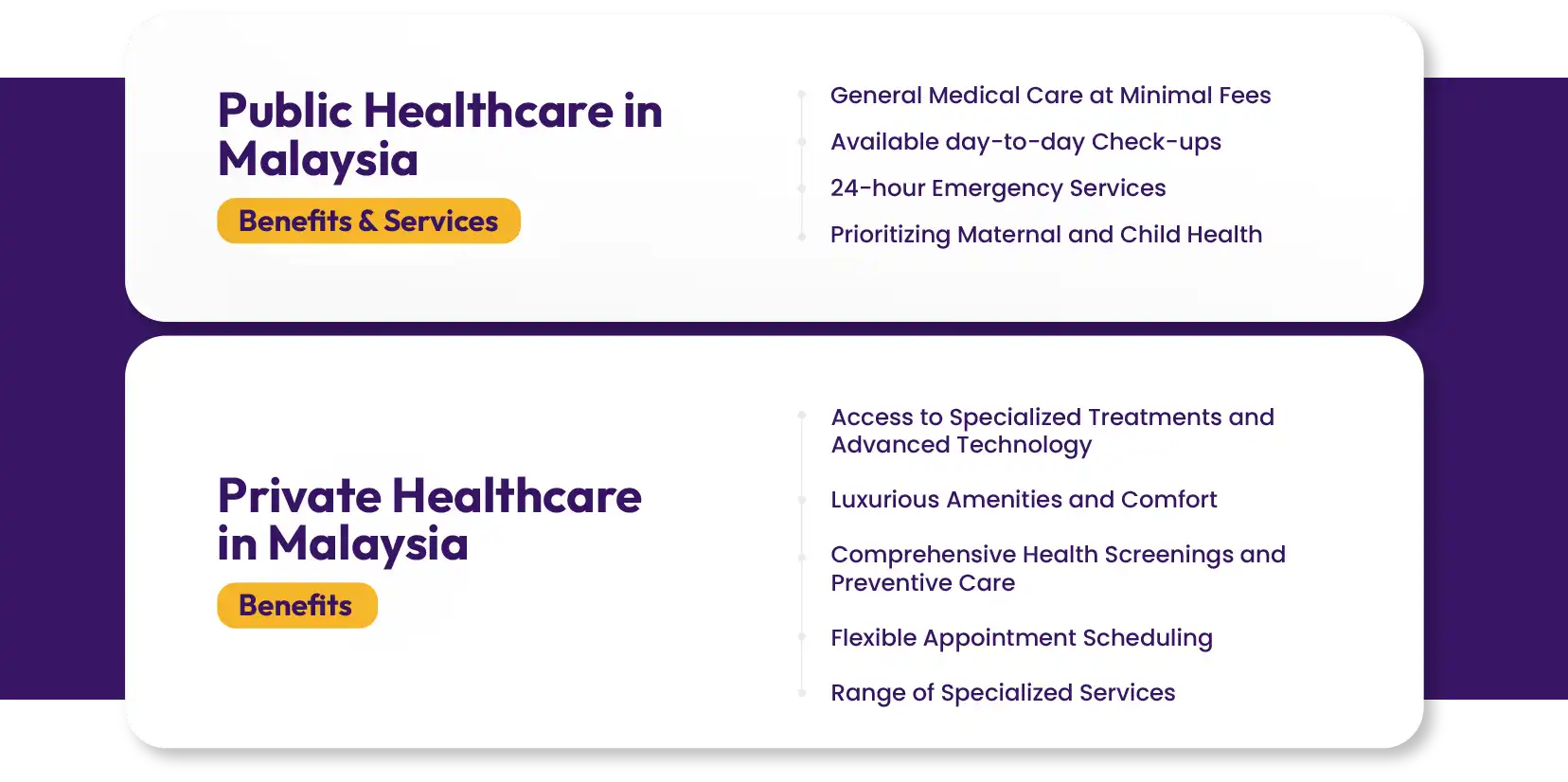When you think of Malaysia, you picture lush rainforests, pristine beaches, and irresistible street food.
But if you're a citizen, resident, or even an international student planning to stay for a while, you may be wondering, “Does Malaysia have universal healthcare?”
On this page, we are answering all the questions you may have about healthcare in Malaysia for international students, and more…
What is Universal Healthcare in Malaysia?
.webp)
So, what exactly is "universal healthcare"?
Simply put, it's when a healthcare system ensures that all citizens and residents can access affordable health services without financial challenges.
Does Malaysia Have Universal Healthcare?
So, does Malaysia provide universal healthcare?
Yes, Malaysia does provide universal healthcare for its citizens and legal residents, according to the International Trade Administration of the United States.
Let’s zoom in on the universal healthcare in Malaysia:
Accessibility for Citizens and Residents
Malaysia's public healthcare is highly accessible to citizens, with most treatments available at low or even nominal fees.
However, non-citizens may face slightly higher costs at public hospitals, which means the system leans in favor of citizens.
Affordability and Coverage
Malaysia’s government subsidies keep public healthcare costs very low.
However, while essential care is covered, not all advanced treatments or specialized medications are available at public facilities, which is where private healthcare often steps in.
Malaysia’s Healthcare Structure: Public vs. Private
Malaysia's healthcare system stands on two legs: public and private sectors.
Public Healthcare in Malaysia
- The public sector, which includes government hospitals and clinics, is designed to be affordable for Malaysian citizens and residents.
- This sector provides various services, from primary care and vaccinations to emergency treatments, at minimal costs.
Private Healthcare in Malaysia
- The private sector, on the other hand, offers quicker service and access to specialized treatments.
- However, this comes with higher out-of-pocket costs unless the patient has private health insurance.
Public Healthcare in Malaysia Benefits and Services

The public healthcare system in Malaysia provides essential services, including:
- General Medical Care: Citizens can visit government clinics and hospitals for everyday health issues, paying only minimal fees.
- Emergency Services: For urgent care, public hospitals are well-equipped to handle emergencies, with 24-hour services in place.
- Maternal and Child Health: The government prioritizes maternal and child health, providing services like prenatal check-ups, vaccinations, and pediatric care.
Private Healthcare in Malaysia Benefits
Private healthcare in Malaysia is more expensive than the public system but offers some notable benefits that include (but not limited to):
- Access to Specialized Treatments and Advanced Technology
- Luxurious Amenities and Comfort
- Comprehensive Health Screenings and Preventive Care
- Flexible Appointment Scheduling
- Range of Specialized Services
Healthcare for International Students in Malaysia

If you are coming to Malaysia from abroad to pursue your studies, we understand that you may be wondering “does Malaysia have universal healthcare for international students…”
International students in Malaysia automatically sign up for student health insurance when applying for their student visas.
Here is what the healthcare insurance in Malaysia offers for international students:
Access to Public Healthcare:
International students can access public healthcare but may not enjoy the same subsidies as locals.
Private Healthcare and Insurance Requirements:
All Malaysian universities require international students to have health insurance, which covers them for private healthcare services.
University Health Services:
Many universities in Malaysia have on-campus health services that offer medical consultations, emergency care, and even basic treatments at discounted rates.
So, does Malaysia have universal healthcare?
The answer is yes. For Malaysian citizens, the public healthcare system offers highly affordable, accessible services, making it close to a universal model.
However, there are limited subsidies for non-citizens and international students, which leads to the need for private insurance to cover certain services.
.webp)

.webp)
